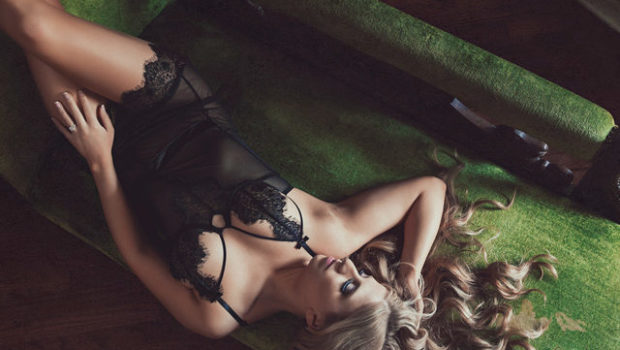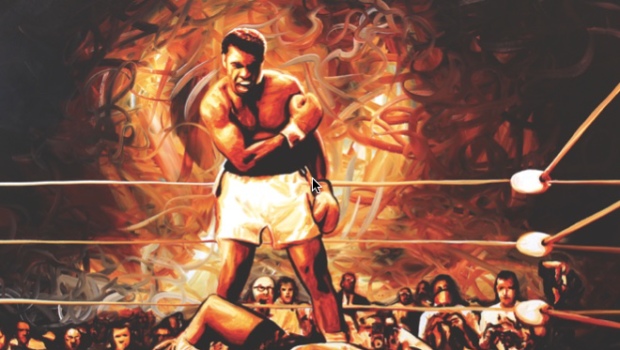
ADAM WADE — The Audacity of Authenticity
by Christopher M. Halleron
photos by Craig Wallace Dale
To succeed in the entertainment business, you need to be relatable. You need to make a connection with the audience and you need to make them feel something. Adam Wade knows that.
His craft—storytelling—may seem overly complicated to explain. But in fact, it’s very simple. Adam Wade tells stories.
He’s not necessarily an actor, nor is he necessarily a stand-up comic. He’s Adam Wade. And being Adam Wade is more than enough.
Just ask the enthusiastic throngs who have packed venues throughout North America to hear him tell his stories. A 20-time winner of The Moth’s StorySLAM competition and a regular contributor to NPR’s “All Thing’s Considered,” “The Moth Radio Hour” and “Snap Judgment,” he’s been featured in everything from The New York Times to Comedy Central’s “Inside Amy Schumer.”
Now Adam Wade is recording his first live album (Tuesday, July 21 at The Bell House in Brooklyn). Not bad for some kid from New Hampshire who spends most of his time enjoying a quiet meal at a table for one in Hoboken.
The Story Behind Storytelling
Like many entertainment professionals before him, Wade got his start working as a page for NBC Studios. He survived the shakeout, later working as a production assistant for Conan O’Brien and Colin Quinn.
“It was great to be a fly on the wall back then,” says Wade. “You see how people treat you.”
“Conan was very cordial and very kind,” he recalls. “The thing with Colin Quinn was that before each show he’d be out telling stories to warm up the crowd. That had a huge effect on me,” says Wade. “Watching him do that, to see how he was doing it—he had the biggest impact on what I’m doing right now. He was just talking about things, and he wasn’t perfect,” he adds.
“You don’t need to be the best person in the story—you’re human, you mess up.” says Wade. “But how do you react to it? So you lost your temper and yelled at the deli guy. How do you respond when you act like an idiot?”
That humble acceptance of life’s pragmatic realities is where Adam Wade separates from the pack. It’s not embellishment or moral grandstanding—it’s not material, or schtick or an act. It’s in his forthright analysis of everyday existence that Wade makes his biggest impact.
“I was reading an article that said the one thing that separates [David] Letterman is authenticity. You know, he’s older now, he’s cranky, but there’s just something real with him,” says Wade. “He is who he is. When he was younger, sure—he was less cranky. But he’s always remained authentic.”
In the entertainment industry, authenticity is almost a taboo. Very few people have gotten away with it.
“Letterman, Colin Quinn, Bob Newhart, Garrison Keillor, George Plimpton—they’ve all done some interesting stuff,” says Wade.
“I used to do a lot of open mics in the City, where you meet a lot of people and get into the social aspect of comedy, making friends and meeting people—socially it’s almost as important as doing the material,” says Wade.

“I used to do musical comedy, and it was awful… I shouldn’t say it was awful, but there wasn’t much substance to it. Then somebody at ‘Tough Crowd with Colin Quinn’ told me I should go check out this Moth show at the Nuyorican Café in the East Village, and it was probably one of the most important nights I’ve had as a performer.”
Drawn to the Light
The Moth is a unique spoken-word experience, focused on the art of storytelling. Since 1997, the group has presented stories worldwide to an increasingly enthusiastic crowd.
“The Moth is huge now—drawing thousands of people,” says Wade “It used to hurt when people were like, ‘what is this Moth thing?’ Now most people know what it is, which is validating to me.”
Telling stories seems simple. Telling stories on a stage for people’s amusement is different—and frankly it sounds a lot like doing stand-up. Yet compared to the far more ruthless world of stand-up, storytelling gives the performer more of a chance to sink or swim.
“The people who go to these shows, they really want to be there. A lot of standup comedy clubs, you’re wondering if people want to be there… bachelor parties, bad dates, and hecklers. I haven’t had too many negative experiences,” he says.
(MORE ON PAGE 2…)

 Previous Article
Previous Article Next Article
Next Article INTIMATE DETAILS EXPOSED: Rebecca Ferrier Photography on the Bare Facts of Boudoir Photos
INTIMATE DETAILS EXPOSED: Rebecca Ferrier Photography on the Bare Facts of Boudoir Photos  BILL’S SPACE SHOW: Bad Pitches
BILL’S SPACE SHOW: Bad Pitches  FREEDY RETURNS: Singer/songwriter Freedy Johnston found fame out of Hoboken in the 1990s—now he’s come back to his roots
FREEDY RETURNS: Singer/songwriter Freedy Johnston found fame out of Hoboken in the 1990s—now he’s come back to his roots  HUDSON GIVES: 75 Area Non-Profits to Benefit from Hudson County Chamber Online Fundraiser — THURSDAY, MAY 14
HUDSON GIVES: 75 Area Non-Profits to Benefit from Hudson County Chamber Online Fundraiser — THURSDAY, MAY 14  Play Ball: Sports In The Mile Square
Play Ball: Sports In The Mile Square  CURTAINS UP: Mile Square Theatre Puts Hoboken In The Spotlight
CURTAINS UP: Mile Square Theatre Puts Hoboken In The Spotlight  Grow-Boken: Optimizing Your Hoboken Green Space
Grow-Boken: Optimizing Your Hoboken Green Space  Art Lives Here
Art Lives Here